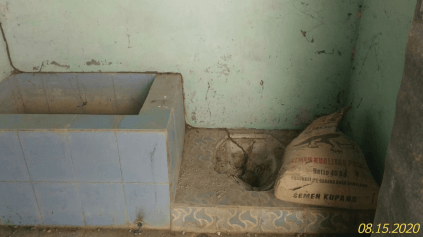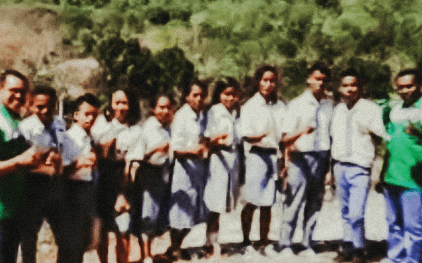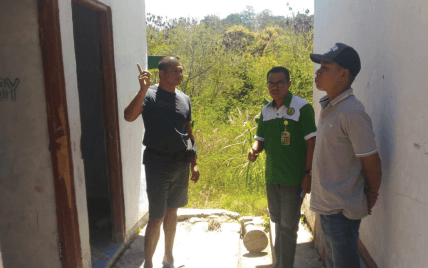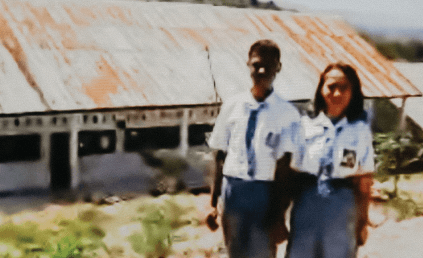Desa Nibaaf is located in the East Nusa Tenggara which has a population of about 700 people. The children in this village hold the key to develop a brighter future for Desa Nibaaf.
As we continue to work towards providing access to clean water in Desa Nibaaf, it came to our attention that there are several issues surrounding their school.
Sanitation

Students are required to share one unisex toilet, giving all 125 of them insufficient access to proper sanitation. This poses numerous health risks to students enrolled in the school, making them susceptible to contraction of diseases.
Education Resource

Since Desa Nibaaf is a village sitting in a dominantly forested region with 99% of its residents working in the field of agriculture, the school offers three programs, which are the following:
- Teknik Rehabilitasi dan Reklamasi Hutan (Forest Rehabilitation and Reclamation)
- Teknik Konservasi Sumber Daya Hutan (Forest Conservation)
- Agribisnis Tanaman Pangan dan Hortikultura (Food Crops Agribusiness and Horticulture)
These programs are implemented to assist students in pursuing their potential career in the agriculture or forestation industry.
As of November 2019, the students have been supplied with 17 laptops and 10 computers to support their learnings. However, they could not benefit from this equipment as they do not have access to Internet in the village.
Today, there are only five qualified teachers with the knowledge and skills needed to teach these specific programs.
Sanitation

To tackle the sanitation problem mentioned previously, we plan to improve the school’s sanitation facilities by providing separate toilets for both male and female students at the school.
While doing this, we plan to raise awareness regarding the importance of sanitation to the students and further educate them regarding the importance of hygiene in order to protect themselves from various diseases.
Education Resource

We are proposing an alternative method of learning, which is to provide offline e-learning programs that are accessible through the use of technology (e.g. equipped laptops and computers).
This shift in equipment is meant to expand the students’ access to their respective course materials and compensate for the deficit in teachers as we are planning to collaborate with university-affiliated organisations across Indonesia to supply and outsource these e-learning resources.
You help is always appreciated. To support our project, you can make a donation to us
Donate through Kitabisa